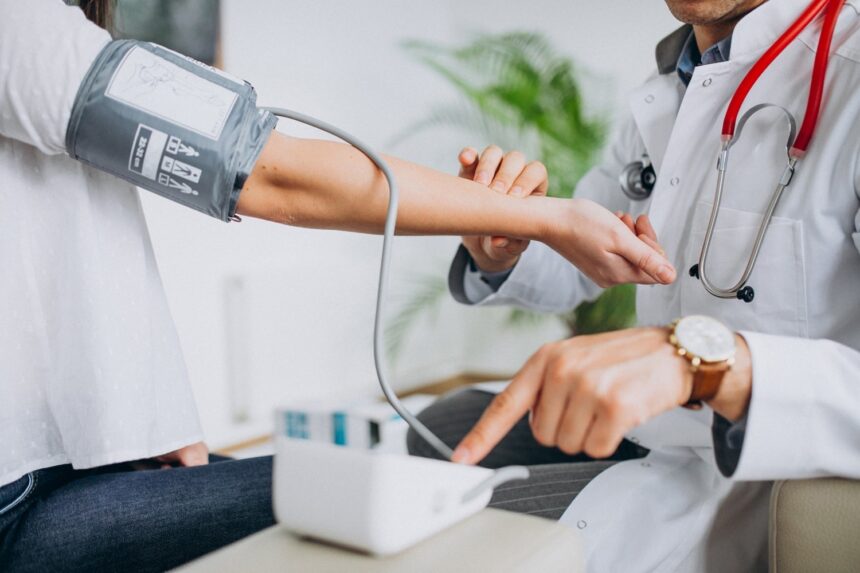Routine health check-ups encourage a proactive approach to healthcare, essential for sustaining good health. They go by several names, such as wellness visits, general medical exams, or recurring health assessments. Whatever the nomenclature, a routine physical examination can determine a person’s greater vulnerability to certain diseases, such as diabetes, heart disease, renal disease, or stroke.
Who requires routine health check-ups?
Working-age individuals (30-60 years) are at a higher risk of lifestyle-related illnesses, including hereditary illnesses, unhealthy choices, and sleep deprivation, affecting various health conditions. A comprehensive physical examination that checks for heart disease, diabetes, cholesterol, blood pressure, and other conditions can ultimately save you money in the long run. However, such conditions can also affect younger and older individuals, they should also require routine health check-ups once in a while as directed by healthcare professionals.
Importance of Regular Health Check-ups
Preventive screenings benefits in early diagnosis of health problems, illness prevention, better health outcomes, cost-effectiveness, health awareness, personalized healthcare plans, screening for asymptomatic disorders, and promoting a preventive healthcare culture.
The frequency and components might vary depending on age, gender, family history, and personal health concerns. Individuals should contact their healthcare professionals to establish the best schedule and screenings.
The importance of regular health check-ups helps to monitor existing or new medical conditions, estimate future risks, promote a healthy lifestyle, and update vaccines. These exams are frequently conducted during other conditions’ visits and are integrated into standard medical treatment. The doctor will advise on the frequency of health check-ups.
A health check also allows for an appraisal of one’s lifestyle and prospective adjustments, which can be done individually or with the assistance of a healthcare expert.
Benefits of regular health check-ups/ Preventive health check-up advantages
1. Disease prevention through check-ups
The importance of regular health check-ups is that it helps spot early warning symptoms of sickness, which are frequently missed or ignored. By providing details like a family history, healthcare experts can recognize these early phases.
Prediabetes, a condition when blood glucose levels are higher than usual but not yet considered to be type 2 diabetes, can be detected by a routine check-up. Changes in lifestyle, such as diet, exercise, and weight loss, can stop prediabetes from turning into type 2 diabetes.
2. Early detection benefits
High blood pressure and high cholesterol are two of the most significant risk factors for cardiovascular disease. Even in the absence of a family history, doctors recommend monitoring blood pressure at least once a year to avoid hemorrhagic strokes. It is critical to frequently evaluate triglyceride and cholesterol levels after the age of 45, and even sooner if there is a family history.
Early intervention through check-ups, which address the buildup of cholesterol and fatty substances in the arteries, may prevent potentially deadly illnesses like strokes.
3. Lower Health Care Expense
Expense is a major reason why many individuals put off regularity in health check-ups, yet for more serious problems, early routine chest X-rays are preferable to costly magnetic resonance imaging (MRI).
Simple, painless scans called bone density testing can forecast fracture risk and osteoporosis, conditions that need long-term medicine. When performed at the appropriate time, minor treatments like these can reduce the likelihood of developing more serious conditions that could be expensive to treat.
4. Prevents further spread of disease
Regular health examinations are essential for cancer screening, which entails looking for abnormal cells in people who do not have symptoms. Early detection facilitates cancer treatment. Mammography for breast cancer, HPV and Pap tests for cervical cancer, colonoscopy, sigmoidoscopy, and stool testing for colorectal cancer are all recommended screening procedures. Prompt therapy helps to limit cancer spread and lower fatality rates.
5. Increases the average lifespan
Routine health check-ups improve people’s general well-being and awareness. They give self-reported data, which indicates that people are healthier than previously thought. These visits also improve the availability of healthcare, help diagnose chronic illnesses, and boost life expectancy. Preventive measures through check-ups like screening tests, vaccines, and managing risk factors all contribute to their success.
Types of Health Check-Ups
Glucose levels
Cholesterol
Blood pressure
Eye checks
Breast examination
Prostate Specific Antigen test for men
Mammogram for women
Dental check and cleaning.
Risk Assessment tests for Type 2 Diabetes and Cardiovascular.
Hearing impairment tests.
Bone Density Test for Osteoporosis.
X-ray
Conclusion
The importance of regular health check-ups is that they maintain overall health and wellbeing since they identify any health issues early on. Given that people between the ages of 30 and 60 are more susceptible to lifestyle-related diseases, they are especially important.
Frequent cancer, heart disease, and diabetes tests can lead to early detection and treatment, slowing the advancement of serious illnesses and reducing medical costs. Additionally, routine examinations enhance proactive health management and health awareness, both of which lead to longer life expectancies and higher quality of life. Regular physicals are therefore a crucial component of preventative healthcare.


Leave a Reply